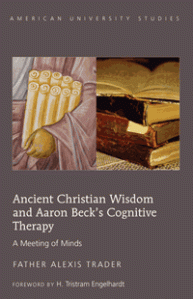Religiosity, Christianity, and Forgiveness
In psychological literature, religion and spirituality are usually contrasted as the institutional and subjective aspects of individuals’ search for the sacred. Religion, in particular, is often defined by a particular constellation of feelings, thoughts, experiences, and behaviors that accompany this sacred search and that are validated and supported by an identifiable group of people. So a Christian who feels gratitude towards God, thinks about Scripture, experiences God’s nearness, and goes to Church in ways that are shared with others in that Christians group could be called religious. One would think that religiosity would have some influence on a readiness to forgive, but the findings are in fact intriguingly ambiguous.
In their article entitled, “Antecedents and Consequents of Interpersonal Forgiveness,” authors Blake M. Riek and Eric W. Mania found that religiosity plays an indeterminate role in an individual’s disposition to forgive another. Some studies, particularly those whose participants reported to be from a Judeo-Christian background, found that there was indeed a strong relationship between one’s religiosity and forgiveness. Other studies found no such correlation. Riek and Mania conclude, “This suggests that religion has a larger impact on how people feel about forgiveness than the actual practice of forgiveness.” In other words, religion tends to make one quite forgiving in theory, but not necessarily so forgiving in practice. Part of the problem, according to psychologists, is that religion is a broad term that needs to be unpacked. Just going to Church might not make one necessarily more forgiving, but what about giving to the poor or visiting the sick? Unfortunately to my knowledge, psychologists have not yet explored those possibilities.
The uncertain relationship between forgiveness and religion can be used to sharpen our focus on how to in fact become more forgiving. We know that the fathers took a rather dim view of the religions of ancient Greece. They saw them not only as misguided and false, but as making a person more selfish and passionate. And in their minds, the one thing Christianity was not was a religion. As strange as it may sound to modern ears, Christianity was not about going to heaven or being protected from harm by God. It was not about keeping the rules or joining a club, but about a new, captivating way of life in the here and now based upon one’s relationship with the Lord Christ, begun in the heart and then extending to one’s thoughts, behavior and entire life. For these holy men and women, their relationship with Christ influences and forms their personalities and their relationships with others. In fact, this is not a mere transformation of some personality characteristics, but a profound transfiguration of the whole Christian person who naturally imitates Christ in all things, most especially in compassion and forgiveness.
Father John Romanides, a 20th century Orthodox theologian, made the bold statement that Christianity is not a religion at all, but a therapeutic course of treatment that heals the human person. He eschews the term religion in describing the Christian way: “The biblical tradition as preserved by the Fathers cannot be identified with or reduced to a system of moral precepts or Christian ethics. It is rather a therapeutical asceticism which is not daunted by any degree of malady of the heart or noetic faculty short of its complete hardening. To take the shape of this asceticism without its heart and core and to apply it to a system of moral precepts for personal and social ethics is to produce a society of puritanical hypocrites who believe they have a special claim on God’s love because of their morality, or predestination, or both. The commandments of Christ cannot be fulfilled by any simple decision to do so or by any confidence in having been elected.”
The problematic results about the relationship between religiosity and forgiveness now become a bit more clear. Just admiring morality, just doing what one has to do to get to heaven, just doing what one should to attain God’s blessings, just belonging to a group that says that forgiveness is a good thing, all these religious reasons and practices are not going to be enough to freely, spontaneously, and wholeheartedly forgive, if there hasn’t been a change of heart that comes about from continuous, humble, trusting communion with Christ.
In a previous post on Lent, I wrote, “There is certainly nothing wrong with people trying to do the right thing and to be moral and upstanding citizens. The problem is that salvation and transfiguration are not a matter of morality. The publican and the prodigal were not moral people. They did all the wrong things, but yet they came to themselves, they discovered their hearts, and in so doing found the way, not just to moral goodness, but to holiness, to righteousness, and to feasting in the Father’s household. In the West, many speak about Lent as a period of struggle whose goal is for Christians to become better people. For the ancient fathers, however, it is not just about “the good being preserved in their goodness and the crafty becoming good” (anaphora of Saint Basil the Great), although these are things to be prayed for. Rather, it is about discovering the heart, being honest about oneself, being humble before God, and in repentance beginning an incredible journey in which the soul seeks to be clothed in Christ, so that thoughts, desires, the will, all become holy, all become bent on salvation, all become an expression of His forgiveness and His love. No frail human morality can ever hope to contain the overflowing fullness of life with which Christ desires to rejuvenate the faithful.”
For the Christian, forgiveness is inextricably linked with a new life in Christ at this very moment and every moment thereafter. It is an expression of ongoing repentance that is a lifelong process encompassing all our actions and interactions. Saint John of Damascus was fond of saying, “In hell, there is no repentance” (An Exact Exposition of the Orthodox Faith, book 2, 4), which is another way of saying Christianity is all about changing the mind now, about communion with Christ in the heart now, and with responding to others on the basis of that communion now. And what is forgiveness if not a change in how we look at a brother who has wronged us in the present. Perhaps, if Christians are not as forgiving in practice as they are in theory, the problem is that their understanding of Christianity and their practice of Christianity is a bit off center. For those who view the Christian life as primarily a life of joyful and continuous repentance, I think they will find that the forgiveness of God in their hearts will extend to every soul that they touch, regardless of what that soul may have done to them.




Reblogged this on Struggling with faith>.<.
I’m not quite sure I understand the assumption that religion osity would imply that someone is more willing to forgive. I think you’re assuming that all religions value forgiveness.that is incorrect… just read the Old Testament
Thank you for your comment on the post. It is true that the Old Testament has many images of revenge and eye-for-an-eye, tooth-for-a-tooth morality, which we will, God-willing, explore in later posts. As for religions and forgiveness, in Judaism, if a person harms another, and then sincerely apologizes to the wronged individual along with rectifying the wrong, then the wronged individual is religiously required to grant forgiveness. Additionally, it is required that one must apologize to those one has harmed in order to be entitled to forgiveness. Before the Day of Atonement (Yom Kippur), Jewish believers will seek forgiveness from those they have wronged during the year and then during Yom Kippur they will seek forgiveness from God for sins they committed against God during the year. In Buddhism, forgiveness is seen as a practice to prevent negatively laden emotions from infecting one’s mental well being and harming others.When resentments have already surfaced, the Buddhist view is to calmly proceed to release them by going back to their roots. In Hinduism doing penance and asking for forgiveness are related to the law of Karma and can help ensure a better future life. In Islam, forgiveness is a prerequisite for true and genuine peace. Islam teaches that Allah is the most forgiving and is the original source of all forgiveness. As for Christianity, I think it goes without saying. Given this quick survey, I think it is clear that there is some basis for the assumption that religions have something to do with forgiveness.